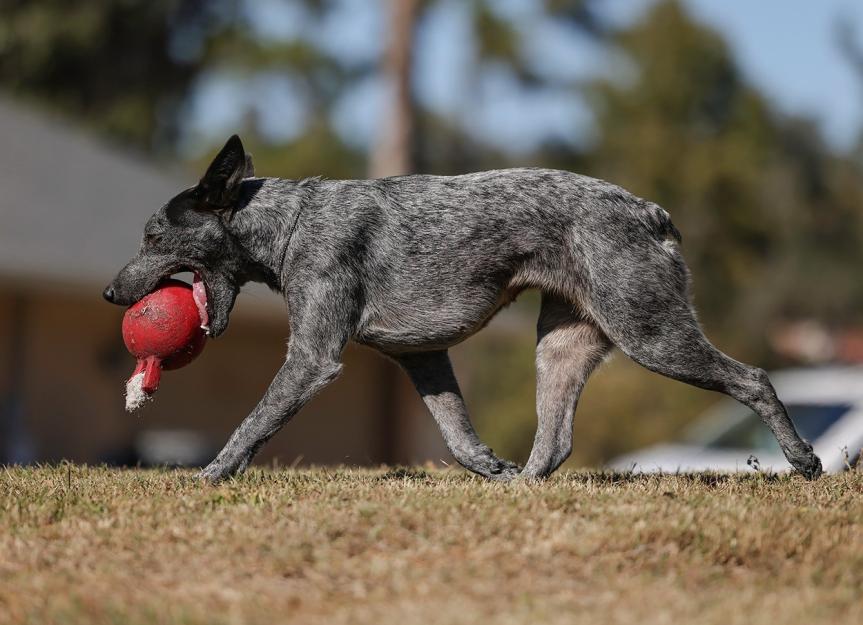Australian Stumpy Tail Cattle Dogs aren’t Australian Cattle Dogs who’ve lost their tails. In fact, not all Stumpies even have “stumps” for tails. The two breeds share common ancestors, but Stumpies are an entirely distinct breed that joined the American Kennel Club’s Foundation Stock Service in 2018.
Stumpy Tail Cattle Dogs are typically short on tail length but not on energy, intelligence, or determination. Thought to be the first breed developed Down Under, the Stumpy’s origins date back to the 1840s when local working dogs were crossed with imported ones to create what the Australian Stumpy Tail Cattle Dog Society of the United States calls “the epitome of a working dog.”
According to the breed club, Australian Stumpy Tail Cattle Dogs have served as herding, search-and-rescue, service, therapy, police, and military dogs—though they don’t need an official “job” to thrive.
Caring for an Australian Stumpy Tail Cattle Dog
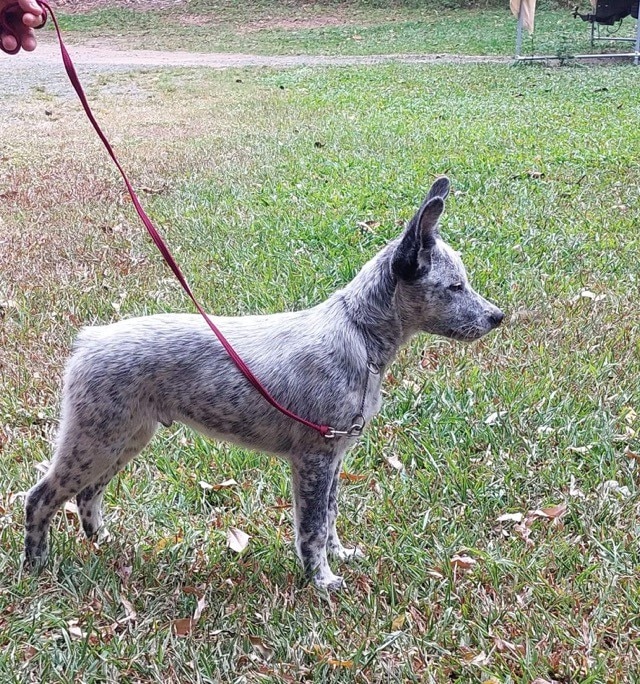
The Stumpy may be the epitome of a working dog, but they also require some work from their pet parents. Even the breed club is quick to note that the dogs aren’t the right fit for every family.
Stumpy families will need to provide their dog with a job, though it doesn’t have to be in an official capacity. Australian Stumpy Tail Cattle Dogs have chart-topping smarts and stamina, so daily physical exercise and mental stimulation is an absolute must.
While Stumpies aren’t always outwardly affectionate, they are loyal, obedient companions. The breed club describes them as “Velcro dogs” because they prefer to be close to their people.
Strangers, however, are another story. While every Stumpy is different, most need time to warm up to people they don’t know. Socializing your Stumpy puppy can help make them more comfortable around new people.
Stumpies are best suited for older children who can safely interact with such a fearless, high-energy pup and in homes where they can be the only dog.
Australian Stumpy Tail Cattle Dog Health Issues
The Australian Stumpy Tail Cattle Dog is a generally healthy dog breed with a lifespan of 12–15 years, but like all dogs, they’re predisposed to certain health conditions.
Deafness
Stumpies are prone to congenital deafness (present at birth), which can affect one or both ears.
The BAER (brainstem auditory evoked response) test can definitively confirm deafness in your pup, but there isn’t a cure. Still, with some accommodations and training, dogs with hearing loss can live a long, happy life with relative normalcy.
Hip Dysplasia
Hip dysplasia is a condition in which the hip joint doesn’t develop properly. It’s characterized by a looseness that leads to osteoarthritis if left untreated. Mild cases are treated with interventions like physical therapy and anti-inflammatory drugs, while severe cases may require surgery.
Common signs of hip dysplasia include:
-
-
Reluctance to get up or jump
-
Shifting of weight to front legs
-
Loss of muscle mass in back legs
Elbow Dysplasia
Similar to hip dysplasia, elbow dysplasia refers to an elbow joint that hasn’t developed as it should. It’s one of the most common causes of osteoarthritis in canine elbows.
Anti-inflammatory drugs can help with the pain and inflammation, but surgery is recommended before osteoarthritis develops. Common signs of elbow dysplasia include:
-
Limping, especially after exercise
-
Reluctance or unwillingness to walk or exercise
-
Stiffness in the elbow joint
-
Grating or crackling sound from the elbow joint
Progressive Retinal Atrophy
Progressive retinal atrophy (PRA) is when the rods and cones within a dog’s eye break down, leading to vision loss.
Signs of disease include:
-
A reluctance to enter dark spaces
-
Clumsiness
-
Dilated pupils that constrict slowly in response to light
-
Eyes that are more reflective in the dark
-
There’s no cure for PRA, and the condition eventually leads to blindness in dogs.
Primary Lens Luxation
Primary lens luxation (PLL) is a condition in which the lens of the eye moves out of its normal position. It can happen in one or both eyes, and affected dogs may have eyes that are red, teary, cloudy, and painful.
PLL can also cause inflammation and glaucoma, and it can progress to blindness if left untreated. If caught early, surgically removing the lens can be helpful. Topical and oral medications can also help manage pain and discomfort.
What To Feed an Australian Stumpy Tail Cattle Dog
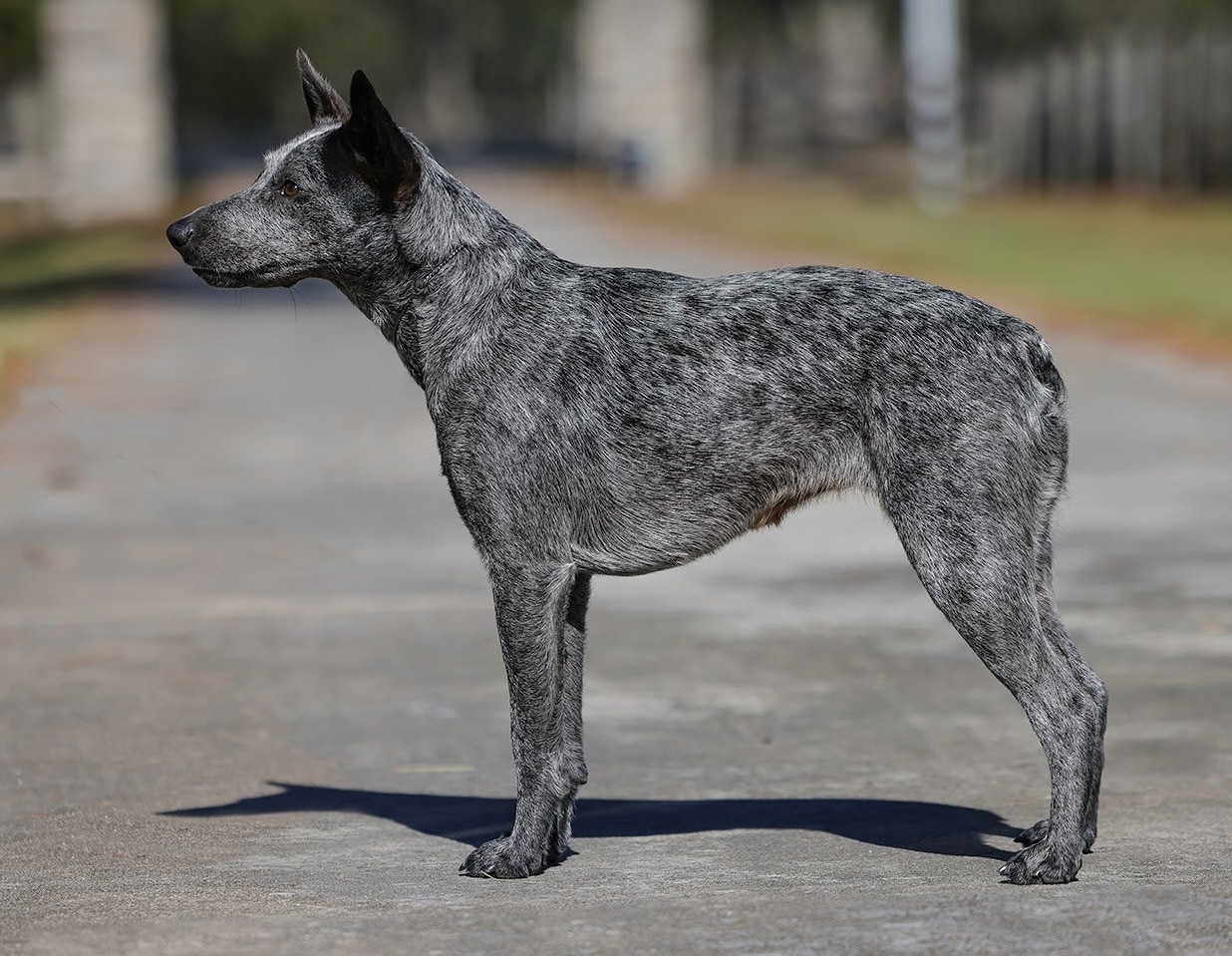
Your veterinarian can help you choose the best dog food for your Stumpy. The food you select should:
How To Feed an Australian Stumpy Tail Cattle Dog
Most adult Stumpies should eat two meals a day: once in the morning and again in the evening. Australian Stumpy Tail Cattle Dog puppies, however, have a higher metabolism and may need three or four meals a day. Your vet can help you determine how often to feed your dog.
How Much Should You Feed an Australian Stumpy Tail Cattle Dog?
To determine how much to feed your Stumpy, do two things:
-
Look at the nutrition label on your dog’s food bag. This provides a general idea of how many calories your dog needs, based on their weight.
-
Talk to your veterinarian. They can make a personalized recommendation based on your individual pup’s weight, body condition score, lifestyle, and health needs.
Know that dog treats contain calories, and treats shouldn’t make up more than 10% of your dog’s daily diet. Be sure to factor them into your overall feeding plan.
Nutritional Tips for Australian Stumpy Tail Cattle Dogs
Your Australian Stumpy Tail Cattle Dog should receive all the nutrients they need from eating a dog food that meets AAFCO standards. However, your veterinarian may recommend nutritional supplements to treat or manage various health issues, such as joint supplements for hip dysplasia.
Talk to your veterinarian before adding anything new to your dog’s diet, however, including supplements.
Behavior and Training Tips for Australian Stumpy Tail Cattle Dogs
Australian Stumpy Tail Cattle Dog Personality and Temperament
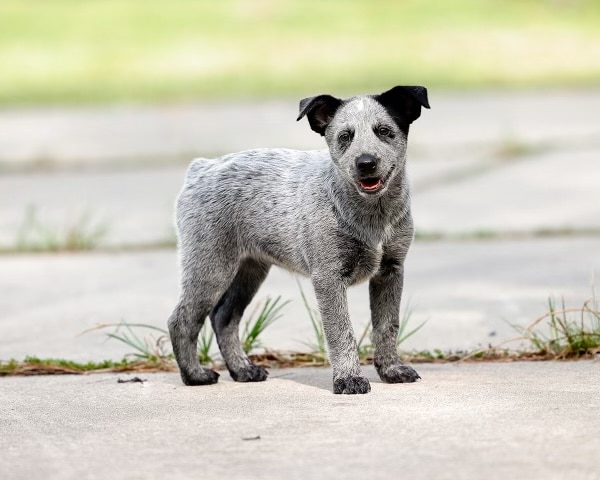
Australian Stumpy Tail Cattle Dogs were bred to work, and they still need a job regardless of whether they live on an actual working ranch. These are alert, loyal, brave dogs with a seemingly endless supply of energy. Safe outlets for exercising their brain and body are imperative.
Stumpies prefer to be close to their people, but can be wary of strangers and other dogs.
Australian Stumpy Tail Cattle Dog Behavior
Bored, lonely Australian Stumpy Tail Cattle Dogs with energy to spare are more likely to engage in unwanted behaviors, such as chewing and barking.
All outdoor exercise should occur on a leash or within a securely fenced area. Otherwise, your Stumpy may follow their working and herding instincts into danger.
Australian Stumpy Tail Cattle Dog Training
Begin socializing and training your Australian Stumpy Tail puppy as soon as you bring them home. Socialization involves introducing your puppy to new animals, people, environments, activities, and objects, with a goal of helping them feel more comfortable in new situations throughout their life. Ask your vet for age-appropriate socialization and training ideas.
Stumpies are smart, eager-to-please training pupils who enjoy flexing their brain muscles. Like all dogs, they respond best to a consistent, positive, rewards-based approach.
Training is also a great way to provide your Stumpy with fun mental enrichment and physical exercise while building the crucial human-animal bond.
Fun Activities for Australian Stumpy Tail Cattle Dogs
Australian Stumpy Tail Cattle Dog Grooming Guide
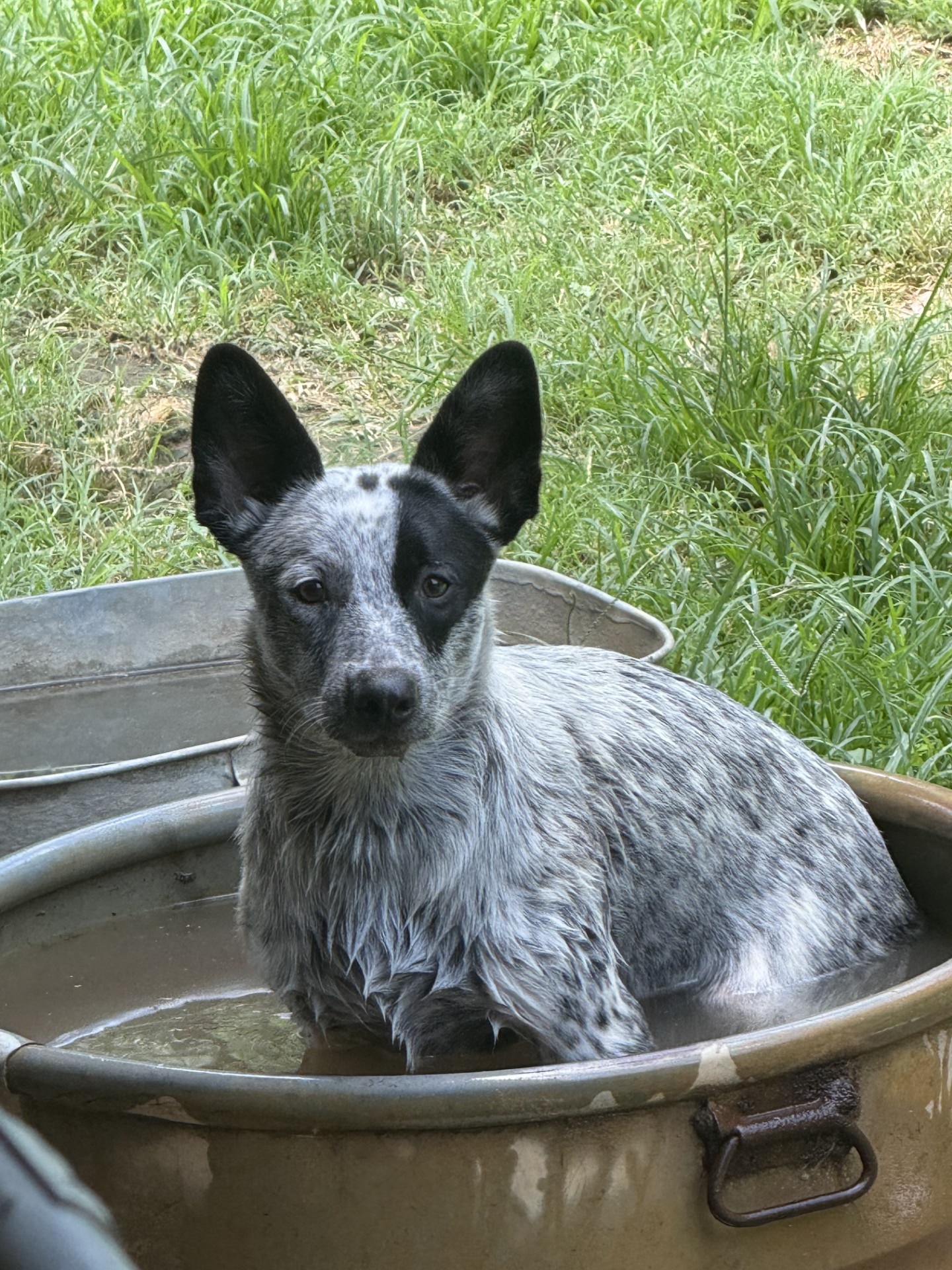
Stumpies sport short, double coats that can be blue, red, mottled, or speckled. Though their grooming is fairly minimal, the breed sheds regularly, and hair loss ramps up twice a year when they lose their undercoat.
Skin Care
If your Stumpy spends a lot of time outdoors, regularly check them for burrs and other debris that can get stuck in their fur and irritate their skin. And even with year-round flea and tick prevention, it’s important to regularly scan their skin for ticks.
Coat Care
The Stumpy’s coat isn’t prone to matting, but it does shed. Regular brushing can help corral stray hairs, and you’ll likely need to increase your brushing routine when undercoat shedding picks up during the spring and fall.
How often your Stumpy needs a bath depends on their lifestyle. Talk to your veterinarian about how often to bathe your dog, and always use a dog-friendly shampoo.
Eye Care
Stumpies are prone to several eye issues. Call your veterinarian if you notice signs of disease, such as redness, discharge, cloudiness, or apparent vision changes.
Ear Care
Stumpies aren’t prone to ear problems, but be sure to call your vet if you notice signs of an ear infection, such as redness, swelling, discharge, and odor. Ask your vet if you need to clean your dog’s ears and which ear cleaner to use.
Considerations for Pet Parents
Here are some questions to consider before adding an Australian Stumpy Tail Cattle Dog to your family:
-
Do I live in a home without very small children or other dogs?
-
Do I have the time and energy to provide a dog with daily mental and physical exercise?
-
Can I keep a dog on a leash or within a fenced area when outdoors?
-
Am I home enough to provide a “Velcro dog” with close companionship?
-
Do I have the skills and patience to provide early socialization and lifelong training using positive reinforcement?
-
Am I OK with fur on my furniture and clothes?
-
Am I financially prepared to provide veterinary care?
-
Can I provide a dog with a loving home for their lifetime, which could be 15 years or more?
If you can answer these questions with an enthusiastic “Yes!” you may be ready to parent a Stumpy.
Australian Stumpy Tail Cattle Dog FAQs
What is the difference between an Australian Stumpy Tail Cattle Dog and an Australian Cattle Dog?
Though they are very similar in appearance, job, and origin story, the Australian Cattle Dog and Australian Stumpy Tail Cattle Dog are different breeds.
Australian Cattle Dogs have a long tail and can feature tan markings in their coats; Stumpies have neither. Moreover, Australian Cattle Dogs have a rectangular body, while Stumpies are square, making their legs appear longer. The Stumpy’s ears are also higher set and more upright in orientation.
What is the lifespan of an Australian Stumpy Tail Cattle Dog?
The Australian Stumpy Tail Cattle Dog has a lifespan of 12–15 years.
Featured image courtesy of Lori Graham of the Australian Stumpy Tail Cattle Dog of the US

